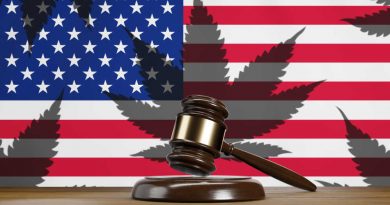Lawmakers Make Medical Marijuana in Mississippi Legal
With a signature from the governor in late February, medical marijuana in Mississippi became legal, making it the 37th state to legalize medical cannabis. While the law is limited in scope, it accomplishes something that looked uncertain even a few months ago as opponents stalled the measure.
The new law allows Mississippi residents to seek treatment for certain debilitating diseases and conditions by getting a doctor’s prescription for medical marijuana. The list of conditions includes Alzheimer’s disease, cancer, Parkinson’s disease, HIV/AIDs, sickle cell anemia, post-traumatic stress disorder (PTSD) and autism.
While the law became effective immediately, the first dispensaries may not open for several months.
“For all the people who are touched in some way by a loved one or someone they know who benefits from medical cannabis, this brings their quality of life back,” Ken Newburger, executive director of the Mississippi Medical Marijuana Association, told NPR.
Putting the Will of the People Into Action
The voters of Mississippi approved legal medical marijuana in November 2020. However, the state Supreme Court invalidated the law, ruling that the state’s ballot initiative process is outdated and that the measure was improperly put on the ballot.
Republican state lawmakers who control both houses of the legislature then rewrote the measure. Part of the changes addressed a problem that Gov. Tate Reeves had with the law passed by voters. It allowed people to have as much as five ounces of cannabis per month.
At one point, Reeves said “other medicines are not ‘all you can eat’” and called for lawmakers to reduce the amount of cannabis people can have to about three ounces per month. Reeves claimed anything more would be like making recreational cannabis legal. The new law reflects his wishes.
Mississippi Not Providing Incentives to Dispensary Businesses
In another interesting move, state lawmakers also put in a rule that keeps the state from providing incentives to medical marijuana dispensaries, even though the state does this for other industries.
Also, the law does not require employers to change any working conditions for an employee who uses medical marijuana. It also does not bar an employer from refusing to hire a new employee or fire a current employee because of medical marijuana use. That could become an issue as drugs tests can still detect THC in blood or urine long after a person has used them. Other places have banned pre-hire drug testing.
For those in the state interested in having access to legal medical marijuana in Mississippi, they must meet the following criteria.
- Have a diagnosis by a licensed medical practitioner – one with whom they have a practitioner-patient relationship – as having a qualifying medical condition.
- Receive written certification of that diagnosis from the practitioner
- Obtain a registry identification card from the Mississippi State Department of Health
Whether Mississippi residents can find a dispensary in their area is another issue. The law allows cities and counties to opt out of allowing medical marijuana operations – including grow facilities and dispensaries – in their area. They must decide within 90 days.




